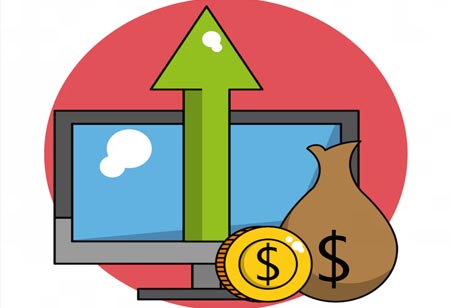CLOSE
Specials
- RegTech Europe
- Financial Risk Management APAC
- Investment Banking APAC
- Corporate Advisory APAC
- Regtech APAC
- Escrow Services
- Digital Banking Latam
- Trading Solutions APAC
- Treasury Management Europe
- CPA Firms Canada
- Financial Risk Management Europe
- Mortgage Broker
- Financial Licensing Europe
- RIA Advisory Europe
- FinTech Canada
- Financial Asset Management APAC
- Investment Banking Canada
- Payment Solution
- Lending Mangment Latam
- Payment Solution Europe
- Broker Dealer Firms Canada
- Alternative Investments Canada
- Financial Fraud
- Investment Management Latam
- Financial Health Europe
- Lending mangment
- Financial Marketing
- Proprietary Trading Europe
- Wealth Management
- FinTech
- Financial Brokerage Firm APAC
- Investment Advisory Europe
- Investment Advisory APAC
- Wealth Management MENA
- Claim Adjusting
- Claim Adjusting APAC
- Mergers and Acquisitions Consulting APAC
- Equipment Financing
- CPA Firms
- Mergers and Acquisitions Consulting Canada
- Investment Services
- Valuation Services Canada
- Wealth Management APAC
- Broker Dealer Firms
- Debt Collection Agencies
- Mergers and Acquisitions Consulting
- FinTech Europe
- Fintech Latam
- Financial Planning / Retirement
- Investment Management
- Financial Compliance
- Digital Banking Europe
- CFO Services
- Debt Collection Agencies Europe
- Wealth Management Europe
- Mergers and Acquisitions Consulting Europe
- Financial Restructuring Europe
- Financial Portfolio Management Canada
- Business Loan
- Payment and Card Latam
- Wealth Management Latam
- Mergers and Acquisitions Consulting Latam
- Tax Advisory Canada
- Trading Solutions Europe
- Alternative Investments
- Digital Insurance Europe
- Investment Services Latam
Weekly Brief
×Be first to read the latest tech news, Industry Leader's Insights, and CIO interviews of medium and large enterprises exclusively from Financial Services Review
Thank you for Subscribing to Financial Services Review Weekly Brief
Significance of Forensic Accounting in the Age of Digital Technology
All sectors and businesses are witnessing a rapid evolution of customer expectations.

By
Financial Services Review | Tuesday, September 27, 2022
Stay ahead of the industry with exclusive feature stories on the top companies, expert insights and the latest news delivered straight to your inbox. Subscribe today.
Forensic auditing technology in the digital future resembles the power of integrated circuits, will quadruple, and new accounting technologies are advancing at an unprecedented rate.
FREMONT, CA: All sectors and businesses are witnessing a rapid evolution of customer expectations. Forensic accounting companies will need to make quick technological advancements a fundamental component of their overall strategy to remain competitive and meet customer demand in this environment. This trend has worsened by the Covid-19 pandemic, accelerating the pace of accounting companies' digital transitions and raising client expectations. Firms can achieve these client expectations with digital forensic accounting software.
Over the past years, the nature of B2B customers has transformed, surpassing old industry boundaries. In addition to comparing their experience with the firm to that of other firms they've worked with, clients will also compare the best customer service experiences they've had in any industry. B2B buyers, such as those who hire forensic accounting companies, would prefer a supplier that provides a consumer-like experience over a comparable alternative that does not. In forensic accounting, clients and the organization under examination will likely anticipate a digital experience.
Covid-19 modified predictions regarding B2B interactions
Social distancing was one of the pandemic’s earliest and most practical innovations. Suddenly, forensic accountants and auditors were prohibited from entering the office of a corporation. As a result of the pandemic, the need for internet channels skyrocketed, compelling businesses and entire industries to respond in kind. These modifications to the consumer base are permanent. Even with the easing of social distance rules, individuals still expect to be able to engage via digital channels, and they will expect the same from the B2B companies with which they do business. It is necessary to maintain a technology plan for maximizing the digital investment that can meet the changing demands of the clientele.
Digital investments are on the rise
Financing for digital initiatives increased during the Covid-accelerated digitization of their organization, and this money raised significantly more than other measures such as costs and customers. Businesses had to deal with increased online service demand from customers. In the end, Covid advanced the proportion of digital or digitally enabled products and services enterprises. IT initiatives are now focused on improving customer experience, although a pleasant customer experience has always been essential to the strategy of the majority of businesses. With these bottlenecks removed and the time/money already invested, there is no reason to revert to the previous methods.

Copyright © 2025 Financial Services Review. All rights reserved





